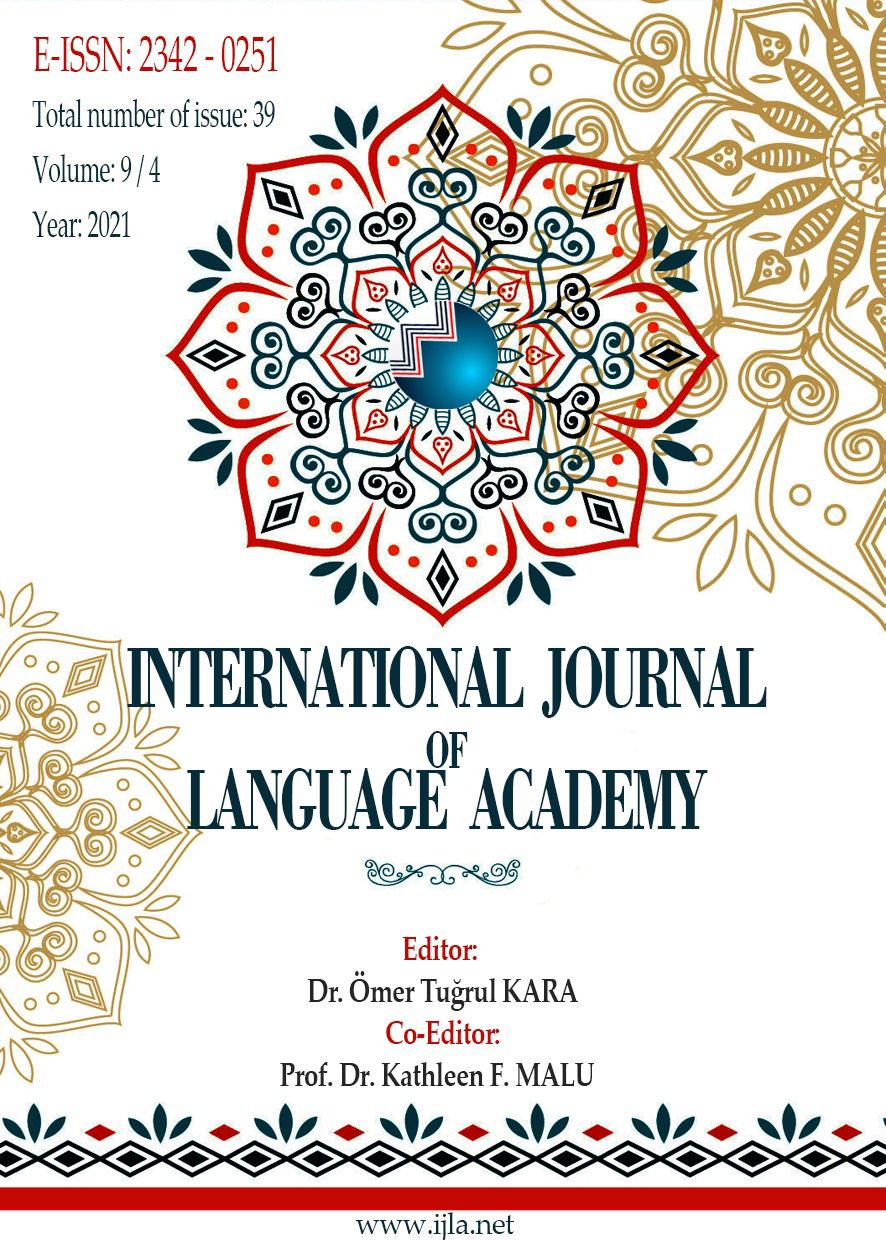Author :
Abstract
Soğuk savaş yıllarının en önemli olaylarından biri, 23 Ekim 1956 günü bir öğrenci hareketi olarak başlayan ve bütün Macaristan’a yayılan; Macar İsyanı’dır. Sovyetler’in baskıcı tutumuna karşı daha fazla dayanamayarak isyan eden Macar halkı oldukça zor bir dönemden geçmiştir. Başarısızlığa uğrayan bu isyan sonucu binlerce insan hapse atılmış, öldürülmüş, ülkeden kaçmak zorunda kalmış ve yüzlerce kişi idam edilmiştir. Bu olay Türkiye tarafından da takip edilmiş ve dönemin günlük gazetelerinde isyanın hangi aşamada olduğu, isyanı başlatan öğrencilerin talepleri, Macaristan’ın siyasi olarak nasıl bir tutum sergilediği gibi pek çok konu yakından takip edilmiştir. Cumhuriyet dönemi Türk şiirinin önde gelen isimlerinden Sezai Karakoç, Sovyetlere karşı başkaldıran Polonya ve Macaristan halkının yanında olduğunu “Kan İçinde Güneş” şiiriyle bir anlamda ilan etmiştir. Şair, Polonya ve Macaristan halkının başına gelen zulümleri oldukça çarpıcı bir biçimde şiirine taşımış ve olaya yönelik büyük bir farkındalık oluşturmuştur. Sovyetlere karşı girişilen bu isyan mücadelesi her ne kadar başarısızlığa uğramış olsa da Karakoç, bu olaya olumsuz bir yönden bakmak yerine güzel günlerin geleceğine dair Macar halkına destek ve moral vermekten geri durmamıştır. Karakoç’a, “Kan İçinde Güneş” şiiriyle Macar halkına desteği dolayısıyla ödül verilmesi ve şairin bu ödülü şiirini kaleme aldıktan yıllar sonra kabul etmesi, onun her türlü haksızlığa ve zulme karşı isyancı bir şair kimliği taşıdığının önemli bir göstergesidir. Çalışmamızda şairin “Kan İçinde Güneş” şiiri, Macar İsyanı göz önünde bulundurularak incelenmiştir.
Keywords
Abstract
One of the most important events of the Cold War years was the Hungarian Revolt, which began as a student movement and spread all over Hungary. The Hungarian people, who rebelled against the repressive attitude of society, went through a very difficult period. As a result of this failed revolt, thousands of people were imprisoned, killed, forced to leave the country, and hundreds of people were executed. This event was also followed by Turkey, and many issues were closely followed in the daily newspapers of the period, such as the stage of the rebellion, the demands of the students who started the revolt, and how Hungary behaved politically. Sezai Karakoç, one of the leading figures in Turkish poetry of the Republican period, declared that he stood with the Polish and Hungarian people who rebelled against the Soviets with his poem "The Sun in Blood." The poet vividly depicted the persecution of Poles and Hungarians in his poetry, making a significant difference in the event. Although this rebellion against the Soviets failed, Karakoç does not hesitate to support and reassure the Hungarian people that good days will come, instead of looking at this event from a negative perspective. The only award that Karakoç has accepted throughout his life for his support to the Hungarian people with his poem "The Sun in Blood" is an important indication that he has the identity of a rebel poet against all kinds of injustice and persecution. In our study, the poet's poem "The Sun in Blood" was analyzed, considering the Hungarian Revolt.
Keywords
- Bekcan, Ü. U. (2019). Sovyet penceresinden 1956 Macar ayaklanması: Batı destekli bir karşıdevrim girişimi, Sosyal Bilimler Araştırma Dergisi, 8 (1). 15-23.
- Diclehan, Ş. (2018). Sanat ve düşünce dünyasında Sezai Karakoç, İstanbul: Dicle Yayıncı- lık.
- Fejtö, F. (2012). 1956 Macar ihtilali ilk antitotaliter ihtilal. (F. B. Kocamemi Çev.) İstanbul: Bilgi Kültür Sanat Yayınları.
- Geçen, S. (2014). İkinci yeni şiirinde başkaldırı, (Yüksek Lisans Tezi). Ardahan üniversitesi sosyal bilimler enstitüsü, Ardahan.
- Gülboy, G. P. (2012). 1956 Macar ayaklanmasının Türkiye basınında yansımaları. Erişim tarihi: 08.11.2021, https://www.academia.edu/1368219/1956_Macar_Ayaklanmas%C4%B1n%C4% B1n_T%C3%BCrkiye_Bas%C4%B1n%C4%B1nda_Yans%C4%B1malar%C4%B1
- Karakoç, S. (2015). Diriliş neslinin âmentüsü, İstanbul: Diriliş Yayınları.
- Karakoç, S. (2016). Edebiyat yazıları II dişimizin zarı, İstanbul: Diriliş Yayınları.
- Karakoç, S. (2019). Edebiyat yazıları I medeniyetin rüyası rüyanın medeniyeti şiir, İstanbul: Diriliş Yayınları.
- Karakoç, S. (2019). Gün doğmadan, İstanbul: Diriliş Yayınları.
- Kıral, B. (2020). Nitel bir veri analizi yöntemi olarak doküman analizi. Siirt Üniversitesi Sosyal Bilimler Enstitüsü Dergisi. 8 (15). 170-189.
- Kirenci, M. (2021). Sabah yıldızı Sezai Karakoç ve diriliş’e dair çağı ve çağdaşları, kronolojik hayatı, idealini gerçekleştirme araçları, hakkında yazılanlardan seçmeler (19572020). İstanbul: Büyüyen Ay Yayınları.
- Milliyet (2020, Eylül). Polonya hakkında bilgiler; Polonya bayrağı anlamı, 2020 nüfusu, başkenti, para birimi ve saat farkı. Erişim tarihi: 17.11.2021, https://www.milliyet.com.tr/dunya/polonya-hakkinda-bilgiler-polonya-bayragianlami-2020-nufusu-baskenti-para-birimi-ve-saat-farki-6300729
- Önal, M. (2017). Son konferansları bağlamında Sezai Karakoç’un “medeniyet” ve “diriliş” kavramları. İnönü Üniversitesi Uluslararası Sosyal Bilimler Dergisi. 6 (2). 189-194.
- Sak, R., Sak Şahin, İ.T., Şendil, Ç.Ö. & Nas, E. (2021). Bir araştırma yöntemi olarak doküman analizi. Kocaeli Üniversitesi Eğitim Dergisi. 4 (1). 227-256.
- Şahin, O. (2020). 1956 Macar devrimi. Erişim tarihi: 06.11.2021, http://www.turkmacar.org.tr/1956-macar-devrimi/
- Turkmacar (2018, Ekim). 1956 Macar İhtilali’nin 62. yıl dönümü. Erişim tarihi: 17.11.2021, http://www.turkmacar.org.tr/1956-macar-ihtilalinin-62yildonumu/
